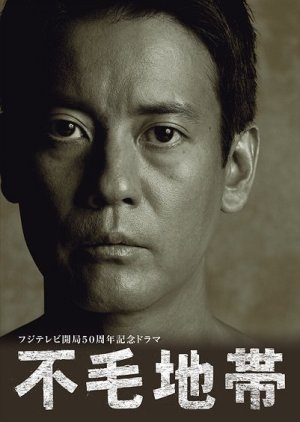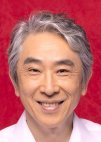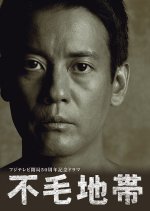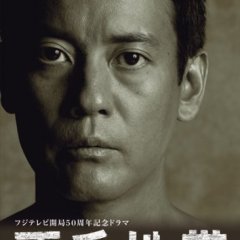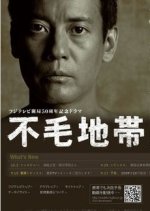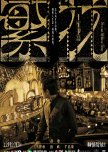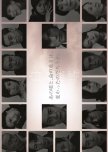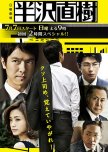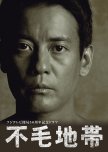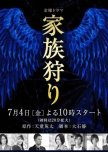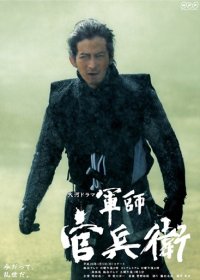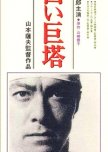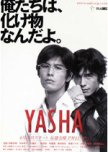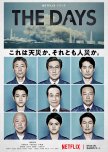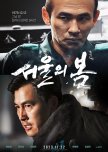 A Stalker's Guide to Takenouchi Yutaka
A Stalker's Guide to Takenouchi Yutaka Iki Tadashi is a military leader who was captured by the Soviets during World War II. Treated as a war criminal, he was sentenced to many years of labor in a harsh Siberian detention camp. After 11 years of imprisonment, he is released. He returns to Japan and begins readjusting to life as a civilian, rejecting an offer from his former colleague to work on a defense project. Tadashi has decided to never involve himself in war again, much to the joy of his family. Instead, he attempts to set off on a new path working at a major trading company. --Tokyograph Edit Translation
- English
- magyar / magyar nyelv
- dansk
- Norsk
- Native Title: 不毛地帯
- Also Known As: The Waste Land
- Screenwriter: Hashibe Atsuko
- Director: Mizuta Naruhide, Hirano Shin, Sawada Kensaku
- Genres: Military, Business, Drama
Cast & Credits
- Karasawa Toshiaki Main Role
- Wakui EmiIki YoshikoSupport Role
- Tabe MikakoIki NaokoSupport Role
- Saitoh TakumiIki MakotoSupport Role
- Yanagiba ToshiroKawamata IsaoSupport Role
- Danta YasunoriKaizuka MichioSupport Role
Reviews

Fumo Chitai is an unusual Japanese drama (19 episodes length) but I believe that goes back to the fact that this was made to celebrate Fuji TV’s 50 years’ anniversary. Whatever the reason was, this drama was pretty well-made. This drama tells the story of man who was a leader tactician for the Japanese Imperial army during World War II but when Japan surrendered, he was considered a war criminal and had to go through a hellish trouble to go back to his country. After war, when Japan was devastated by loss and had to find a way to survive, Iki Tadashi has to live a life where he can use his brilliant mind to set the future of his country. He practically exchanged military war with economic war.
Of course, the journey isn’t easy at all and Iki has to face many ordeals to accomplish good deeds for his society. Moreover, he was confronted by greedy politicians, influential figures, people with tricky minds and others who use unethical methods while he had to keep his principles and beliefs to achieve greater good.
The reason why I became surer about my tendencies to Business dramas through Fumo Chitai is the screenwriting, there’s more wittiness in business dramas’ scripts. The screenwriter has to be very capable to keep the thrills and make the audience always interested in what will happen next using the complicated business theme. This drama’s screenwriter was pretty successful at keeping the drama captivating from the beginning until the very last end. He used “arcs” where the main character had to overcome an issue and straightly move to the next one. Certainly, all of the arcs were business themed like the defense ministry’s plane choice, the automobiles contracts, oil exploiting and so on. Without any exception, all the arcs of this drama were stimulating and fun to follow.
However, the reason that forbids me from giving the storyline and the drama a perfect score is the romantic part. It annoyed me and I am not saying that because of my general dislike for the genre but it was unbalanced. I know that a serious heavy drama like this needs a light side to it but that wasn’t cool at all, I am sure if they just focused on the family part then everything would’ve been great.
The acting was absorbing, I know Karasawa Toshiaki from a very long time ago but this is practically the first time that I considered him a high-class actor. I only thought that he was a good actor before but his performance here just engraved his skills in my mind. He was also accompanied by other amazing actors that made the acting department feel so high.
The characters were pretty well written for a business drama and their interactions were also appreciated. And let’s not forget that many foreign characters took part in this drama. However, the only spot-light character during the whole drama was without doubt Iki Tadashi, one heck of a smart male lead who always knows how to get out of troubles and bring profits for his society, company and colleagues. He’s simply a splendid man.
The drama was set from 1945-1970 or so. Thus, you can expect time jumps and somewhat old visuals to fit the drama’s setting.
Watch if:
-You like business dramas.
-You like intense twisty dramas.
-You like brilliantly intelligent main characters.
Do not watch if:
-You dislike business dramas. Seriously this is the perfect definition of how a business drama should be like.
-You’re looking for something fluffy or light.
Fumo Chitai is a glorious story of a man who reformed himself from dust in order to build his country while protecting his noble beliefs. It’s absolutely recommendable for the fans of intense, heavy and entertaining productions.
Was this review helpful to you?

I felt sure I'd like it based on all those reasons and the rave reviews here, but it just felt like both the script and characters were missing something crucial. I was bored, I was annoyed, I kept waiting for it to get better...all things I didn't expect at all. So disappointing!!
For one, I couldn't feel invested in the characters, who should have been compelling based on the story elements (all of which were fictional, so it's not like they were just trying to keep things true to life). I mean, look at this cast! So many stellar, veteran actors, many of who have incredible chemistry in other dramas and films they've worked together in. But there's just no spark, anywhere. There were no fascinating characters, just a lot of stock characters.
The conflict was predictable, both within the family and business plots. And while yes, it might have been realistic that someone who had lived as a POW for 11 years would be expressionless and stilted, it just didn't work for a drama. Karasawa Toshiaki is an awesome actor, and he did what he could with his catatonic-faced character, but it got really old watching him march around like a wooden soldier expressing little emotion. His colleagues, many played by some of my favorite character actors, were beyond boring. No interesting schemers--just caricatures (and I both get and like Japanese stock characters, I should add)...and don't get me started on how some of these great actors were wasted. Some did the best they could, and some had shockingly bad performances. I don't blame them, though, as the dialog was terrible for the most part, and all in the context of very shallow relationships that never do much but skim the very surface. Just ugh.
The storytelling structure was similar to other Japanese TV historical-setting dramas, but it just didn't feel right for this story. The narration, time jumps back and forth, huge time skips...it just felt flat, and made Iki feel like an even more flat character. As for the plot, I was expecting brilliant strategy, chessboard intrigue, intellectual creativity the best serious business dramas have, but I just wasn't impressed by how they played out Iki's supposedly amazing strategies. There were no real twists or surprises, and I was only slightly emotionally invested at some points.
I did enjoy the idea of showing the progressive growth of the postwar economy through specific industries or trades, although I feel like this has been done better. The perspective on the war and post-war decades was super PC (as usual), but to me seemed to be going a little overboard with the melodramatic nationalism for a fictional story (whereas I can understand it for a biopic or something). I guess it can't be avoided for an anniversary-related drama as no major network is going to take any risks.
As the other reviewer said, the romance was a waste of time and annoying. It would've been far better without that arc even if it was part of the novel as it didn't really serve any purpose except to create some generic conflict. It served some purposes to push the plot, but that actually seemed more like contrived conflict. If it was taken out, it would've been more interesting to see how he worked out his family relationships and guilt. Overall motivations were very muddy and not fully convincing. Even the personal inner conflict Iki is dealing with feels flat and underexplored. Or maybe this was supposed to reflect the whole theme of "The Wasteland?" Not sure any medium but a novel could do this in a meaningful way.
OST was okay; some of the orchestration was typical melodramatic historical nationalistic music (ehhh); other themes were better; there was an interesting use of Western music (didn't get the closing Waltzing Matilda, but it did fit the mood). Mostly it fit the story and didn't distract, so that was a plus.
Was this review helpful to you?

